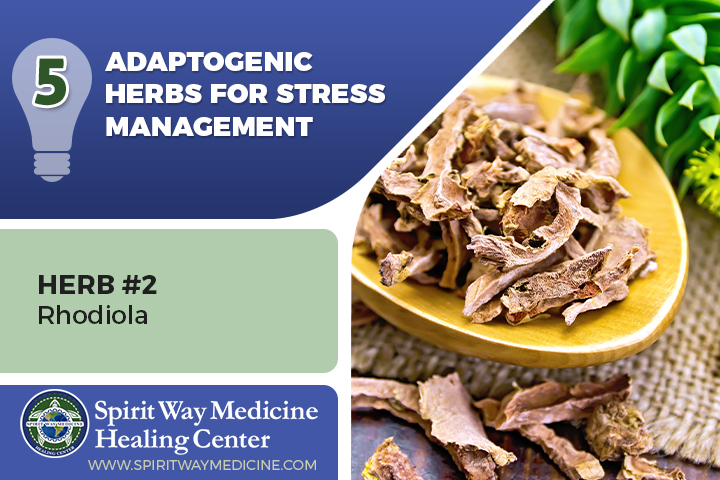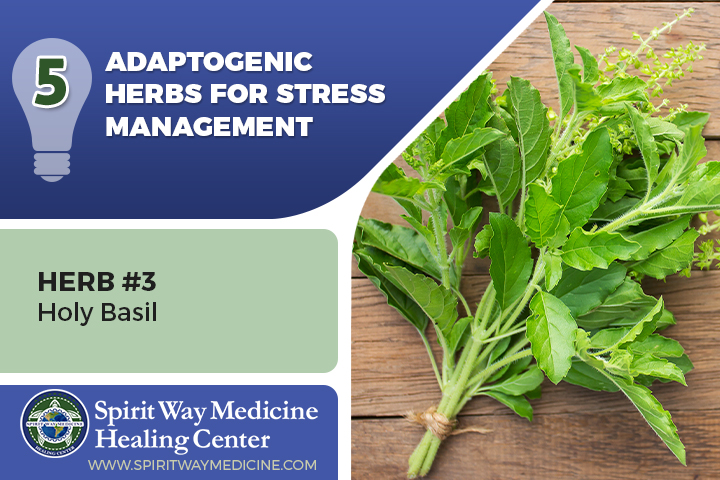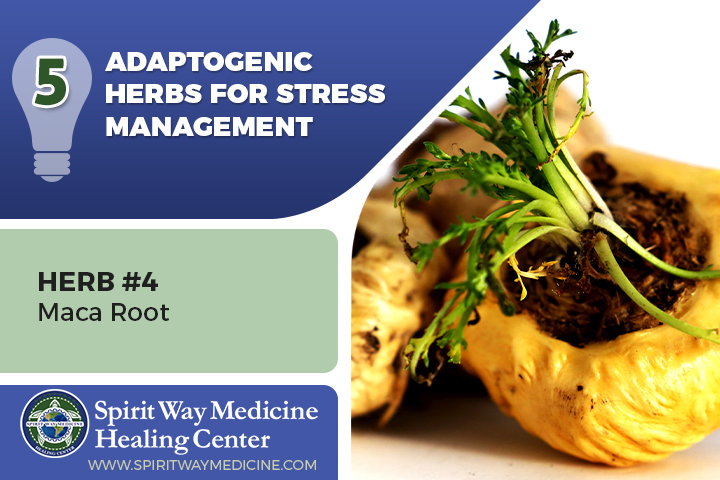Stress has become an unavoidable part of our lives, and it can be challenging to find ways to manage it. Most people turn to unhealthy coping mechanisms, such as drinking or overeating, but these don’t solve the problem. Medication may help in some cases, but it has its side effects and risks. Thankfully, there is a natural solution that can help reduce stress without any unpleasant side effects – adaptogenic herbs!
Adaptogens have been used for centuries as a natural remedy for stress relief and improved overall health. With adaptogens, you can enjoy better energy levels, mental clarity, enhanced immunity, increased stamina, and more – without any unpleasant side effects! This article will explore how adaptogenic herbs work and why they are so effective at naturally reducing stress. So if you’re looking for an easy way to reduce your stress levels naturally, then read on!

1Ashwagandha
Ashwagandha, also known as Withania somnifera, is a traditional Ayurvedic herb used for centuries to help the body adapt to stress. It is considered one of the most potent adaptogenic herbs. It is commonly used to reduce anxiety and stress.
One of the main ways ashwagandha helps manage stress is by reducing cortisol levels. Cortisol is a hormone released in response to stress, and high levels of cortisol can lead to many negative effects, including anxiety, depression, and insomnia. Ashwagandha has been shown to help lower cortisol levels in the body, which can help reduce stress symptoms and improve overall well-being.
Ashwagandha is also believed to help improve mood and cognitive function. It may help increase the production of neurotransmitters, like serotonin and dopamine, which regulate mood and cognitive function. Studies have also shown that ashwagandha may help improve memory and attention and reduce symptoms of anxiety and depression.

2Rhodiola
Rhodiola rosea, commonly known as Rhodiola, is a perennial plant native to the Arctic and mountainous regions of Europe, Asia, and North America. It is considered an adaptogenic herb. It has been traditionally used to improve physical and mental endurance, especially in stressful situations.
Rhodiola aids in increasing strength, mental capacity, energy, and stamina. It improves athletic performance, resists the effects of stress, and helps manage depression, anxiety, and other symptoms, such as fatigue. In addition, studies show it may help protect cells from damage, regulate heartbeat, and help reduce the risk of chronic diseases.

3Holy Basil
Holy basil, also known as tulsi, is an herb that is native to India. It is considered to be a sacred plant in Ayurvedic medicine. It can help protect against infection, lower blood sugar and cholesterol, ease joint pain, and protect your stomach.
Holy basil helps reduce symptoms of anxiety and depression. It is also believed to have anti-inflammatory and antioxidant properties and help reduce the risk of chronic diseases. Its calming effect helps you maintain balance, so you’re ready to take on your day and end the workday peacefully.

4Maca Root
Maca root is a vegetable native to the Andes Mountains in South America. It has been traditionally used to boost energy, stamina, and fertility and is also considered an adaptogenic herb, which may help the body adapt to stress. As a result, it helps the body manage anxiety and depression and may increase energy.
Maca is rich in calcium, amino acids, vitamins, and minerals. Maca root also contains high levels of antioxidants, which can help protect cells and tissues from damage caused by free radicals. In addition, it has high levels of iron and iodine, which promote healthy cells and help keep your metabolism balanced.
Maca root is available in different forms, such as capsules, powder, and liquid extract. It is commonly used as a dietary supplement. It can be added to smoothies, protein powders, and baked goods.

5Licorice Root
Licorice root, also known as Glycyrrhiza glabra, is a perennial plant that is native to parts of Europe, Asia, and the Mediterranean. It is commonly used in traditional Chinese medicine and Ayurvedic medicine to help the body adapt to stress and promote overall well-being. Licorice root has been shown to have a positive impact on mood and cognitive function.
In addition, it helps reduce symptoms of anxiety and depression and improve overall well-being. It has also been traditionally used as an anti-inflammatory to soothe sore throat and stomach discomfort. Licorice root is available in different forms, such as capsules, powder, liquid extract, or as an ingredient in teas. It is a dietary supplement for conditions such as digestive problems, menopausal symptoms, cough, and bacterial and viral infections.

6Bonus Herb – Schisandra Berry
Schisandra berry, also known as Schisandra chinensis, is a small, red berry native to China, Russia, and Korea. It has been traditionally used in Chinese and Russian medicine as a tonic to improve vitality. Schisandra berry is considered an adaptogenic herb, which may help the body adapt to stress by modulating the activity of the hypothalamic-pituitary-adrenal (HPA) axis, which is responsible for the body’s stress response.
It is believed to help the body resist stress by reducing cortisol levels, a hormone released in response to stress, and regulating the immune system. Schisandra berry is used for fatigue and sleep. It is also used to treat cough, liver conditions, stomach disorders, sweating, and other ailments.

How To Use Adaptogenic Herbs
Adaptogenic herbs can be consumed in various forms to help with stress management.
Supplements: Adaptogenic herbs are available in supplement form, including capsules and tablets. They can be purchased at health food stores, online retailers, and other specialty stores.
Teas: Adaptogenic herbs can be consumed as teas. Some popular adaptogenic herbs for tea include ashwagandha, Rhodiola, ginseng, and licorice root. They can be brewed as a single herb tea or combined with other herbs for a more comprehensive blend.
Tinctures: Adaptogenic herbs can be made into tinctures, which are concentrated liquid extracts. Tinctures are taken by adding a few drops to water or another liquid and can be purchased at health food stores or online retailers.
Culinary uses: Some adaptogenic herbs can be used in cooking, such as maca root, holy basil, and Schisandra berry. They can be added to smoothies, protein powders, and baked goods and can be a tasty way to incorporate adaptogens into one’s diet.

Potential Side Effects
Adaptogenic herbs are a class of herbs that are believed to help the body adapt to stress. While these herbs are generally considered safe, there are some potential side effects. One of the most common side effects of adaptogenic herbs is digestive upset, nausea, diarrhea, or upset stomach. This is more likely to occur when the herbs are taken in high doses or when they are taken on an empty stomach. To reduce the risk of digestive upset, take the herbs with food, start with a lower amount, and gradually increase as needed.
Another potential side effect of adaptogenic herbs is insomnia. Some adaptogens, such as ashwagandha and Rhodiola, can stimulate the body, making it difficult to fall asleep or stay asleep. To reduce the risk of insomnia, take these herbs earlier in the day and avoid taking them close to bedtime. Adaptogenic herbs can also interact with certain medications, such as blood thinners, antidepressants, and hormone replacement therapy.
It’s also important to note that adaptogenic herbs can have different effects on different people. Therefore, monitoring your body’s response to the herb is essential, and consult a qualified health professional if you have any concerns. Adaptogenic herbs offer a natural, safe, and effective way to reduce stress without the risk of unpleasant side effects. By understanding how adaptogens work and why they are so effective at reducing stress naturally, you can start incorporating these herbs into your daily routine for improved energy levels, mental clarity, enhanced immunity, and increased stamina.

Adaptogenic herbs are consumed in various forms, such as supplements, teas, and tinctures, or added to smoothies, protein powders, and baked goods. Therefore, they may work differently for everyone. Remember that it is always important to consult with a healthcare professional or an expert in herbal medicine before starting any new supplement regimen, as potential interactions may occur with certain medications. Possible side effects include digestive upset (which can be avoided by taking the herb with food and starting with a low dose) and insomnia (which can be avoided by taking the herb earlier in the day).
It is important to note that, as with any herbal supplement, the quality and dosage can vary greatly. So it’s vital to purchase from a reputable source. However, adaptogenic herbs are generally considered safe when taken appropriately and could be just what you need to manage your day-to-day stress!



